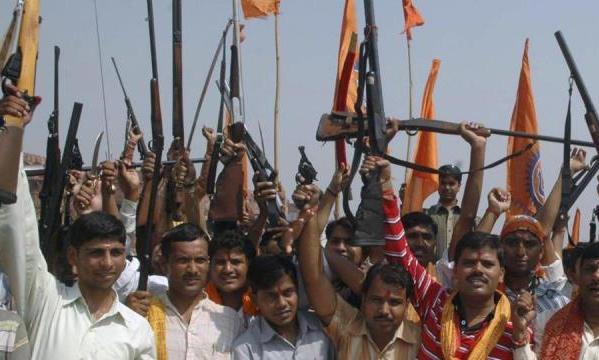
Muslims account for over 95% of victims of Hate Crimes: APCR report
text_fieldsThe escalating number of targeted assaults on individuals belonging to minority communities, particularly Muslims, implies a lack of effective action by law enforcement, which undermines Prime Minister Modi's assurance of "Sabka Vishwas" (Trust of All).
In a recent report released by the Association for Protection of Civil Rights (APCR), it was revealed that 95.5% of the victims of targeted attacks belonged to the Muslim community, while the remaining 4.5% were identified as Christians. The 'Hate Crime Tracker' report for January 2024 recorded a total of 56 instances, comprising 39 hate crimes and 17 incidents of hate speech.
The majority of hate crimes, as highlighted in the report, involved mob violence and communal clashes, accounting for 39.3% of incidents. Attacks on property and physical assaults followed closely at 23% and 21.3%, respectively. The report also documented incidents of intimidation/harassment (9.8%), sexual violence (4.9%), and violence causing death (1.6%).
Disturbingly, the report revealed that political leaders were responsible for 33.3% of hate speeches, with religious leaders accounting for 10%. Madhya Pradesh topped the list with 25.4% of hate crimes and hate speech, followed by Uttar Pradesh (22.03%), Maharashtra (20.3%), Karnataka (11.86%), Gujarat (3.4%), and Bihar (3.39%). States like Manipur, Rajasthan, Goa, Uttarakhand, Jharkhand, Chhattisgarh, Delhi, and Telangana reported the lowest incidents at 1.69% each.
The APCR report provided a comprehensive definition of hate crimes as criminal acts committed against individuals based on their race, religion, colour, national origin, sexual orientation, or other personal traits, motivated by hostility and prejudice. Hate speech, as defined in the report, includes harmful language promoting hatred or violence against certain groups or individuals.
The report defined hate speech as a harmful language promoting hatred or violence against certain groups or individuals. It said, “A hate speech is an expression that advocates, incites, promotes, or justifies hatred, violence, and discrimination against a person or group of persons for various reasons.”
Despite Prime Minister Modi's recent proclamation during the consecration ceremony of Ram Mandir in Ayodhya, claiming it as a symbol of peace, patience, harmony, and coordination in Indian society, the APCR report painted a starkly different picture. It highlighted provocations, violence, and communal clashes in various Indian states during celebrations, reminiscent of the Ram Navami violence pattern.
The report pointed out a critical gap in data collection, with the National Crime Records Bureau (NCRB) not maintaining data under the category of 'hate crime.' The Ministry of Home Affairs (MHA) acknowledged in December 2022 that the Indian Penal Code (IPC) lacks a definition for 'hate crime,' overlooking the need for such a classification.
The APCR report emphasized the urgent need to track and document hate crimes against minorities, filling the void left by the absence of official data. Despite the Supreme Court's stern guidelines to take "immediate" action against hate speech, the report criticized the state and police for complacency, with no substantial actions taken.
In a surprising move, the Indian government recently blocked the hate crime tracker website "Hindutva Watch" under section 69A of the IT Act. The APCR report condemned this action, suggesting it was a deliberate attempt to suppress information and evade responsibility for addressing these crimes.
The report concluded by highlighting the government's negligence, perpetuating a culture of impunity and sabotaging efforts to protect the rights of vulnerable groups. The absence of official data on hate crimes and hate speeches in India was deemed a troubling message of indifference towards the safety and well-being of minority communities.























